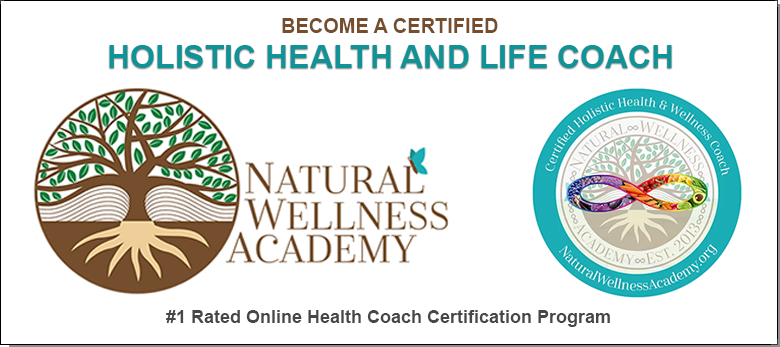
Starting a holistic health coaching business is an exciting and rewarding venture that blends a passion for health and wellness with the desire to help others achieve their best selves. As more people seek natural and preventive approaches to health, the demand for knowledgeable and compassionate holistic health coaches continues to grow. Here we provide valuable tips and strategies to help you establish and grow your holistic health coaching business, from understanding core principles and obtaining certifications to marketing your services and building strong client relationships.
Contents
- Understanding the Basics of Holistic Health Coaching
- Establishing Your Holistic Health Coaching Business
- Developing a Comprehensive Business Plan for Your Holistic Health Coaching Business
- Marketing and Promoting Your Holistic Health Coaching Business
- Client Acquisition and Retention for Your Holistic Health Coaching Business
- References
Understanding the Basics of Holistic Health Coaching
The foundation of holistic health coaching lies in understanding and applying its core principles. These principles emphasize the interconnectedness of body, mind, and spirit, and the importance of natural and preventive health measures.
Core Principles Of Holistic Health
Holistic health is grounded in several key principles that differentiate it from conventional health approaches. These principles guide holistic health coaches in helping their clients achieve overall well-being.
Integration Of Body, Mind, And Spirit
One of the primary principles of holistic health is the integration of body, mind, and spirit. This means recognizing that physical health, mental health, and spiritual health are all interconnected and equally important. A holistic health coach works with clients to create balance and harmony across all these areas, leading to a more comprehensive approach to health.
Emphasis On Natural And Preventive Health Measures
Holistic health coaching also focuses on natural and preventive health measures. This involves using natural remedies, such as herbal medicine, nutrition, and lifestyle changes, to prevent illness and promote health. The goal is to address the root causes of health issues rather than just treating symptoms, empowering clients to take proactive steps toward maintaining their health.
Role And Responsibilities Of A Holistic Health Coach
A holistic health coach plays a pivotal role in guiding clients toward achieving their health goals. Their responsibilities go beyond typical health advice, encompassing a range of supportive and educational functions.
Guiding Clients Toward Overall Well-Being
The primary responsibility of a holistic health coach is to guide clients toward overall well-being. This involves assessing the client’s current health status, identifying areas for improvement, and developing personalized health plans. Coaches provide ongoing support, encouragement, and accountability, helping clients make sustainable lifestyle changes.
Creating Personalized Health Plans
Creating personalized health plans is another critical responsibility of a holistic health coach. Each client is unique, with different health needs and goals. A coach tailors their approach to fit the individual, taking into account factors such as medical history, lifestyle, and personal preferences. These customized plans ensure that clients receive the most effective and relevant guidance on their journey to better health.
Establishing Your Holistic Health Coaching Business
To stand out in the holistic health coaching industry, it’s important to identify a specific niche that aligns with your expertise and passion. This will help you target the right audience and offer specialized services that meet their needs.
Identifying Your Niche
Choosing a niche is one of the first steps in establishing your holistic health coaching business. It involves focusing on a specific area within holistic health where you can offer the most value to your clients.
Specializing In Specific Areas
Specializing in specific areas such as nutrition, stress management, or fitness allows you to become an expert in that field. This specialization helps you attract clients who are looking for targeted support and advice, making your services more appealing and effective.
Understanding Your Target Audience
Understanding your target audience is essential for developing effective marketing strategies and tailoring your services to meet their needs. Research the demographics, preferences, and common health issues of your potential clients to create a profile of your ideal client.
Obtaining Proper Certifications And Training
Proper certifications and training are crucial for establishing credibility and ensuring that you have the necessary knowledge and skills to help your clients effectively.
Accredited Holistic Health Coaching Programs
Enrolling in accredited holistic health coaching programs provides you with comprehensive education and training. These programs cover essential topics such as nutrition, wellness, and coaching techniques, preparing you to offer high-quality services to your clients [1].
Continuing Education And Professional Development
Continuing education and professional development are important for staying current with the latest trends and advancements in holistic health. Attend workshops, conferences, and additional courses to expand your knowledge and enhance your coaching skills.
Setting Up Your Business Structure
Setting up the business structure involves legal and administrative steps that are necessary for launching your holistic health coaching business. This ensures that your business operates smoothly and complies with all legal requirements.
Legal Requirements And Business Registration
Understanding the legal requirements for starting a business in your area is crucial. This includes registering your business, obtaining necessary licenses and permits, and complying with local regulations. Consulting with a legal professional can help you navigate these requirements effectively.
Choosing A Business Name And Branding
Choosing a business name and developing your branding are key elements in creating a professional image. Your business name should reflect your services and values, while your branding, including logo and marketing materials, should create a consistent and appealing identity.

Developing a Comprehensive Business Plan for Your Holistic Health Coaching Business
A clear vision and mission are the foundation of any successful business. They define the purpose of your business and set the direction for all your efforts.
Defining Your Vision And Mission
Your vision and mission statements should inspire you and resonate with your clients. They serve as the guiding principles for your business.
Crafting A Clear And Inspiring Mission Statement
A mission statement articulates your business’s purpose and primary objectives. It should be concise, clear, and inspiring, reflecting your commitment to helping clients achieve holistic health and well-being.
Setting Long-Term And Short-Term Goals
Setting long-term and short-term goals helps you stay focused and motivated. Long-term goals outline your business’s future aspirations, while short-term goals break these aspirations into manageable, actionable steps [2].
Conducting Market Research
Market research is critical for understanding the competitive landscape and identifying opportunities for your business. It provides insights into industry trends and client needs.
Analyzing Competitors And Market Trends
Analyzing competitors and market trends helps you understand what other businesses are offering and how you can differentiate your services. This analysis can reveal gaps in the market and areas where you can provide unique value.
Identifying Opportunities And Threats
Identifying opportunities and threats involves evaluating external factors that could impact your business. Opportunities might include growing interest in holistic health, while threats could be economic downturns or increased competition.
Financial Planning And Budgeting
Effective financial planning and budgeting are crucial for ensuring the sustainability and growth of your business. This involves estimating costs, setting budgets, and creating financial projections.
Estimating Start-Up Costs
Estimating start-up costs involves calculating the expenses required to launch your business. This includes costs for certifications, marketing, equipment, and any initial operating expenses. A detailed list of these costs will help you secure funding and manage your budget.
Creating A Sustainable Financial Plan
Creating a sustainable financial plan includes developing a budget and financial projections for your business. This plan should outline your expected revenue, expenses, and profitability over the short and long term. Regularly reviewing and adjusting your financial plan ensures that your business remains financially healthy.
Marketing and Promoting Your Holistic Health Coaching Business
In today’s digital age, having a strong online presence is essential for any business. This involves creating a professional website and utilizing social media platforms to reach a broader audience.
Building An Online Presence
Building an online presence is the first step in marketing your holistic health coaching business. It allows potential clients to find you easily and learn about your services [3].
Creating A Professional Website
A professional website serves as the cornerstone of your online presence. It should include information about your services, credentials, client testimonials, and contact details. An attractive, user-friendly website can help establish credibility and attract potential clients.
Utilizing Social Media Platforms
Social media platforms such as Facebook, Instagram, and LinkedIn are powerful tools for connecting with your target audience. Regularly posting informative content, engaging with followers, and running targeted ads can increase your visibility and attract clients.
Content Marketing Strategies
Content marketing involves creating and sharing valuable content to attract and engage your target audience. It positions you as an expert in your field and builds trust with potential clients.
Blogging And Writing Articles
Blogging and writing articles on topics related to holistic health can showcase your expertise and provide valuable information to your audience. Regularly updating your blog with high-quality content can improve your website’s search engine rankings and attract more visitors.
Hosting Webinars And Workshops
Hosting webinars and workshops allows you to share your knowledge and interact with potential clients in a more personal setting. These events can help you build relationships, demonstrate your expertise, and generate leads for your business.
Networking And Partnerships
Networking and forming partnerships with other professionals in the health and wellness industry can expand your reach and open up new opportunities for your business.
Collaborating With Other Health Professionals
Collaborating with other health professionals, such as nutritionists, personal trainers, and medical practitioners, can enhance your services and provide comprehensive support to your clients. These collaborations can also lead to referrals and new client opportunities.
Joining Professional Associations And Organizations
Joining professional associations and organizations related to holistic health can provide valuable networking opportunities, resources, and support. Being part of these groups can also enhance your credibility and visibility in the industry [4].

Client Acquisition and Retention for Your Holistic Health Coaching Business
Attracting your first clients can be challenging but is essential for establishing your business. Utilizing effective strategies can help you build a solid client base from the beginning.
A. Attracting Your First Clients
The first step in building your business is to attract your initial clients. This involves showcasing your expertise and making your services accessible to potential clients.
Offering Free Initial Consultations
Offering free initial consultations can be an effective way to attract clients. This allows potential clients to experience your coaching style and understand how you can help them. It also provides an opportunity for you to assess their needs and tailor your services accordingly.
Leveraging Testimonials And Referrals
Leveraging testimonials and referrals from satisfied clients can build trust and attract new clients. Encourage your clients to provide testimonials and refer their friends and family to your services. Positive word-of-mouth can significantly enhance your reputation and reach.
Building Strong Client Relationships
Building strong client relationships is essential for retaining clients and ensuring their long-term satisfaction. Providing excellent service and ongoing support can foster loyalty and positive outcomes.
Active Listening And Empathy
Active listening and empathy are crucial for understanding your clients’ needs and concerns. By genuinely listening and showing empathy, you can build trust and create a supportive environment that encourages clients to open up and engage fully in the coaching process.
Providing Ongoing Support And Follow-Up
Providing ongoing support and follow-up is vital for helping clients achieve their health goals. Regular check-ins, progress assessments, and continuous encouragement can keep clients motivated and committed to their wellness journey.
Implementing Client Feedback For Continuous Improvement
Regularly seeking and implementing client feedback can help you improve your services and address any issues that may arise. This practice shows clients that you value their opinions and are committed to their success.
Regularly Seeking Client Input
Regularly seeking client input through surveys, feedback forms, or informal conversations can provide valuable insights into their experiences. Use this feedback to identify areas for improvement and to make necessary adjustments to your services.
Adapting And Evolving Your Services
Adapting and evolving your services based on client feedback and changing needs ensures that your offerings remain relevant and effective. Continuously refining your approach can help you better serve your clients and enhance their overall experience.
References
[1] How to Start a Health Coach Business in 7 Steps
[2] Health Coach Certification Cost
[3] 3 Tips To Attract Your Dream Clients As A Holistic Wellness Coach
[4] Tips for a Successful Online Holistic Health Coach Business

